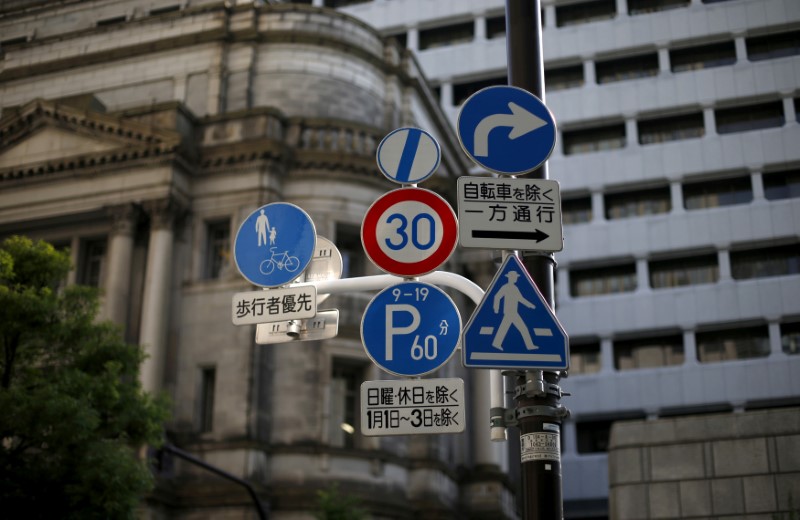By Taiga Uranaka
TOKYO (Reuters) - The head of Japan's banking industry said on Thursday the Bank of Japan's massive monetary easing could cause disruption for the country's financial system if it remains in place too long.
Nobuyuki Hirano, chairman of Japanese Bankers Association, told a monthly news conference that he has a "positive view" on the central bank's negative interest rate policy "as a means to improve the Japanese economy."
"But it is not desirable that (the policy) has become chronic," he said.
In a speech in Zurich earlier this week, BOJ Governor Haruhiko Kuroda mentioned the "reversal rate", which refers to the possibility of reversing the effects of monetary easing if a central bank lowers interest rate lowers too far.
This could happen as a result of financial institutions' lending income getting squeezed and their intermediation function, or role as money middlemen between borrowers and depositors, is impaired, Kuroda said.
Kuroda said such function is not impaired at present and the central bank will continue to pay attention to this risk.

Referring to Kuroda's speech, Hirano, who is also president of Mitsubishi UFJ Financial Group (T:8306), said he "won't be surprised if such risk emerges in the near future."